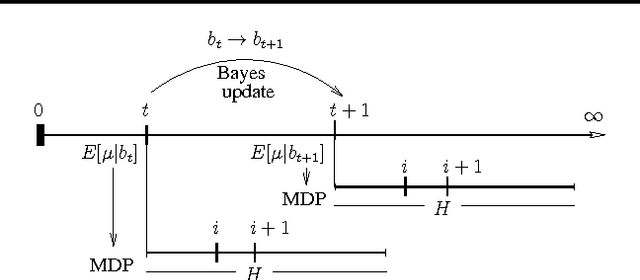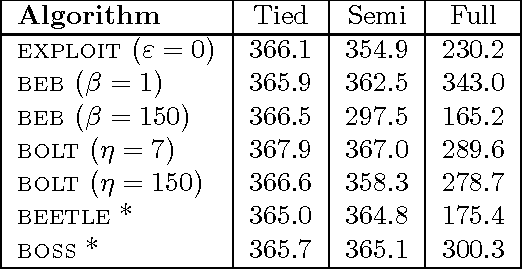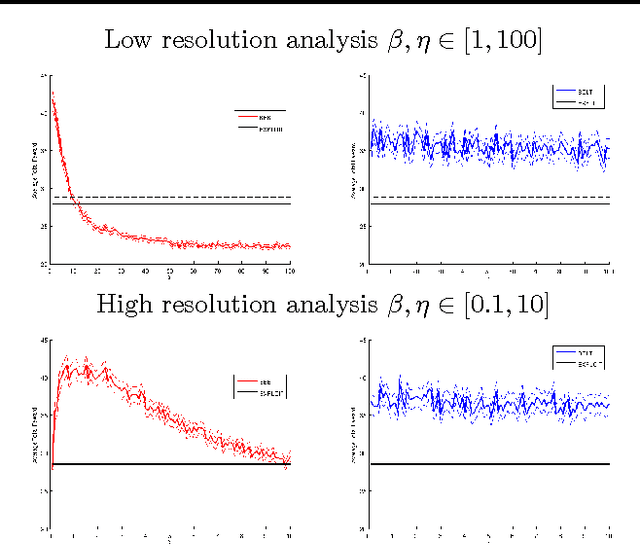Near-Optimal BRL using Optimistic Local Transitions
Paper and Code
Jun 18, 2012



Model-based Bayesian Reinforcement Learning (BRL) allows a found formalization of the problem of acting optimally while facing an unknown environment, i.e., avoiding the exploration-exploitation dilemma. However, algorithms explicitly addressing BRL suffer from such a combinatorial explosion that a large body of work relies on heuristic algorithms. This paper introduces BOLT, a simple and (almost) deterministic heuristic algorithm for BRL which is optimistic about the transition function. We analyze BOLT's sample complexity, and show that under certain parameters, the algorithm is near-optimal in the Bayesian sense with high probability. Then, experimental results highlight the key differences of this method compared to previous work.
* ICML2012
 Add to Chrome
Add to Chrome Add to Firefox
Add to Firefox Add to Edge
Add to Edge